Love the color purple and looking for flowers in similar shade in Texas? Our list of Best Purple Flowers in Texas is going to offer you some stunning specimens!
The color purple signifies creativity, grandeur, wealth, and independence. When it comes to gardening, the purple flower represents admiration, success, dignity, and pride. If you’re a Texan and searching for a purple flower variety for your garden, these Best Purple Flowers in Texas are your best bet!
Check out our article on the best types of green flowers here!
Purple Plants in Texas
1. ‘Henry Duelberg’ Salvia

Botanical Name: Salvia farinacea
USDA Zone: 7-9
Henry Duelberg Salvia is native to Texas. This gorgeous plant is drought-resistant and attains a height up to 2-3 feet and offers 1-foot long dark purple flower stalks nearly all season. It also attracts hummingbirds and butterflies! The plant prefers full sun and well-drained soil.
2. Dwarf Mexican Petunia
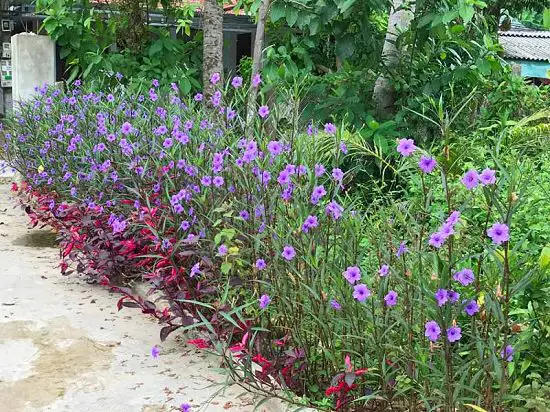
Botanical Name: Ruellia brittoniana
USDA Zone: 8
Also known as a dwarf ruella, this is a low-growing, heat-tolerant perennial. It grows purple or violet flowers with a dark green glossy foliage from early summer till frost. This plant spreads quickly and grows up to 1-2 feet tall, under full sun or partial shade.
3. Purple Heart
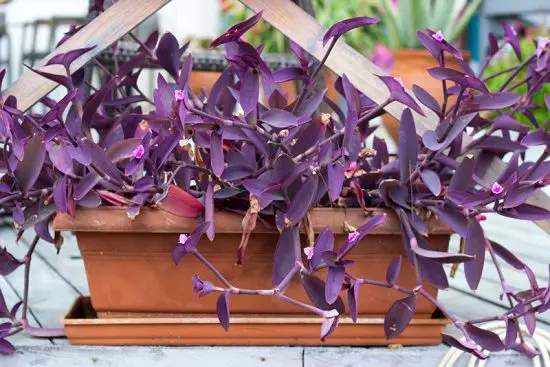
Botanical Name: Tradescantia pallida ‘Purpurea’
USDA Zone: 7-11
Purpleheart displays attractive narrow pointed purple foliage from spring through frost. The plant produces a cluster of orchid-pink flowers. It can grow up to 12-18 inches tall with the same spread. It prefers rich, moist, and well-drained soil under full sun to partial shade.
4. Texas Sage
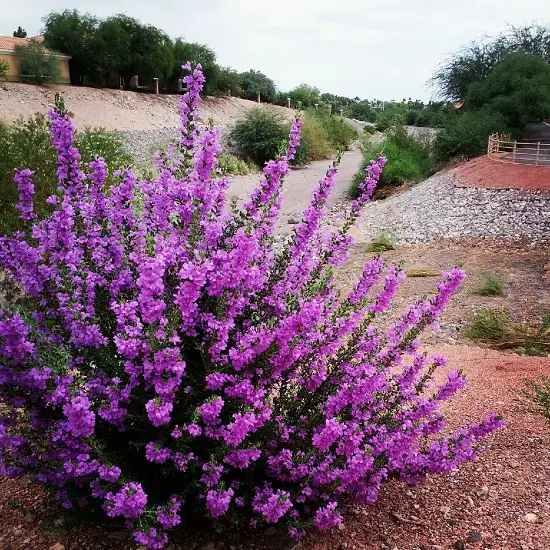
Botanical Name: Leucophyllum frutescens
USDA Zone: 8-11
Texas sage is a drought-tolerant shrub that flowers profusely in lavender purple, white, or magenta. In contrast, the gray-green, furry leaves are not much attractive. This heat and drought plant can reach up to 5-6 feet tall in well-draining soil, under full sunlight.
5. Anise Hyssop
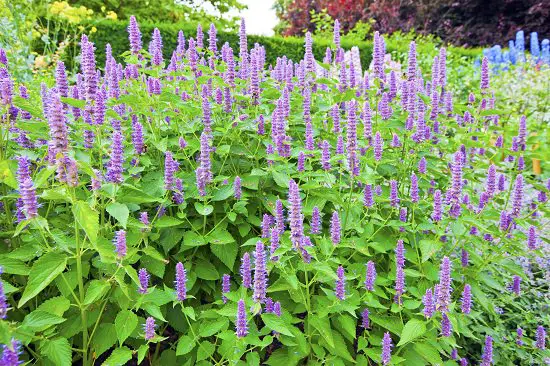
Botanical Name: Agastache foeniculum
USDA Zone: 4-9
Anise hyssop produces 4-5 inches long, deep lavender flower spikes, on 2-4 feet tall plant. The blossoms are edible and have an aroma and flavor of anise-licorice-mint. It flowers from early summer to the first frost and prefers full sun to part shade in well-drained soil.
6. Australian Violet
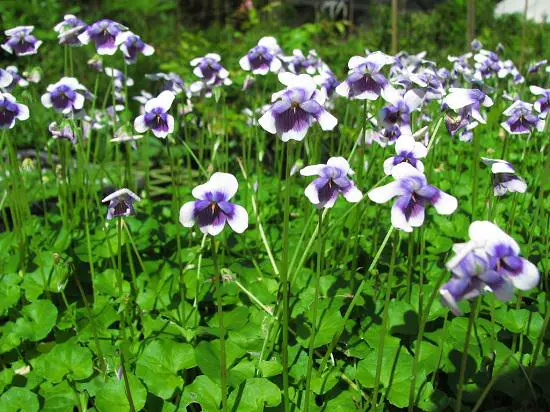
Botanical Name: Viola hederacea
USDA Zone: 8b-11
Australian violet is a hardy perennial that offers purple-white flowers from spring to frost. It can grow up to 4-6 inches tall in part sunlight to bright shade in organic, moist soil. The plant is disease-resistant and root hardy as well.
7. Mexican Oregano
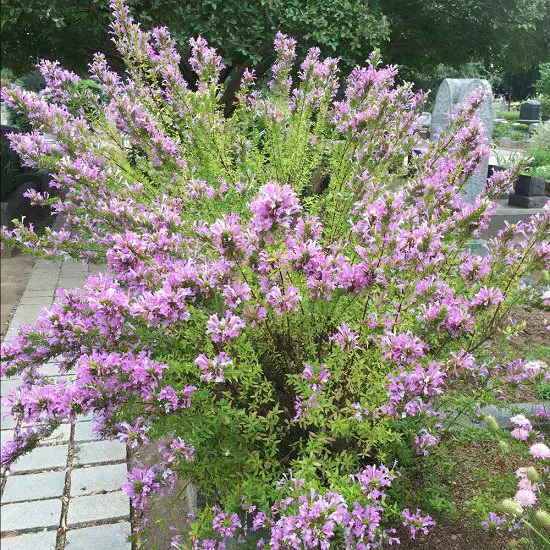
Botanical Name: Poliomintha longiflora
USDA Zone: 7b-11
Also known as rosemary mint, it thrives well in Texas and other dry, hot regions of the United States. Mexican Oregano is easy-to-grow, displaying fragrant tubular purple flowers from spring to fall, in slightly alkaline, well-drained soil.
8. Texas Bluebell
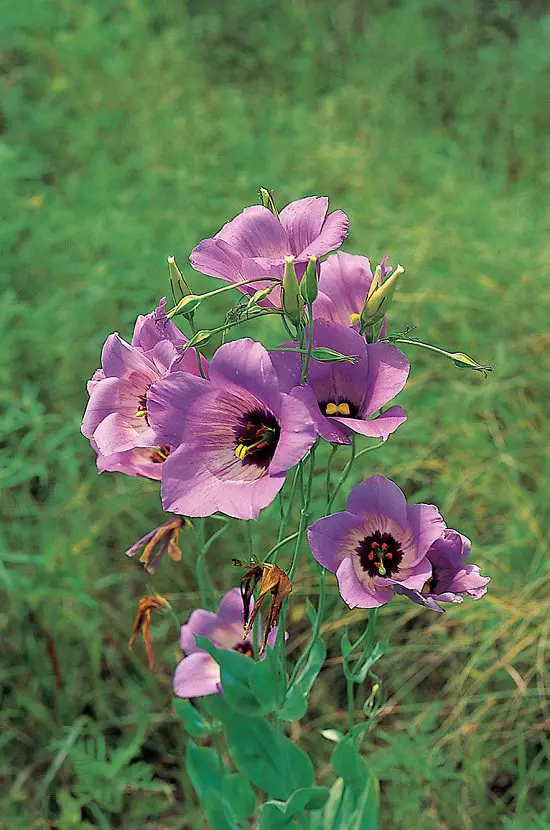
Botanical Name: Eustoma grandiflorum
USDA Zone: 8-10
Texas bluebell features tulip-shaped deep blue to purple flowers with pale-green to blue-green foliage from mid-summer to early fall. The plant prefers fertile, prairie-type soil. Bluebell is ideal for coastal areas with an imperfect drainage facility.
9. Spotted Beebalm
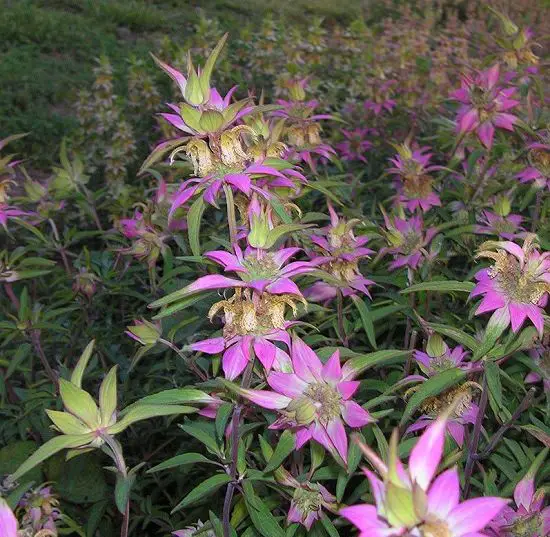
Botanical Name: Monarda punctata
USDA Zone: 5a-10b
Spotted beebalm or horsemint showcases rosettes of yellow, purple-spotted, tubular flowers, in dense, elongated spikes. Every spiral or whorl is encapsulated by large, white-purple tinged leaf-like bracts. It grows well in dry, sandy soil in full sunlight.
10. Gayfeather
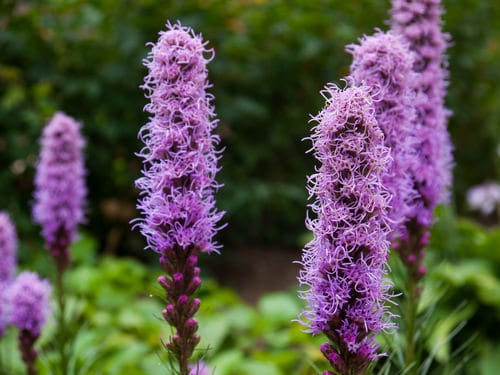
Botanical Name: Liatris mucronata
USDA Zone: 3-9
Also known as button snakeroot, as its roots are used in the treatment of rattlesnake bites. It flowers from August to December and produces purple spikes of blossoms. It prefers well-drained soil and does well in partial sunlight.
11. Aster
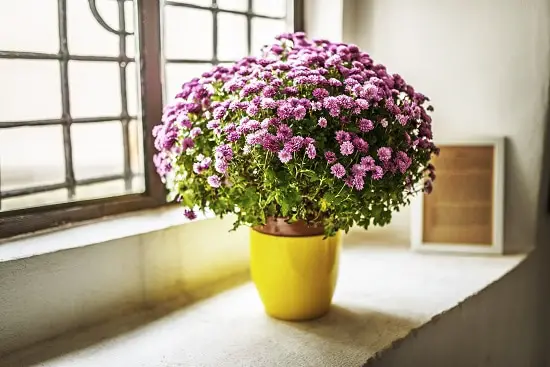
Botanical Name: Aster spp.
USDA Zone: 4-8
Aster features star-shaped, magenta-deep purple flower heads, on 7-8 inches to 6-8 feet tall plant. Grow the plant in full to partial sun, in well-draining, loamy soil. It is one of the most beautiful purple plants in Texas!
12. Alyssum
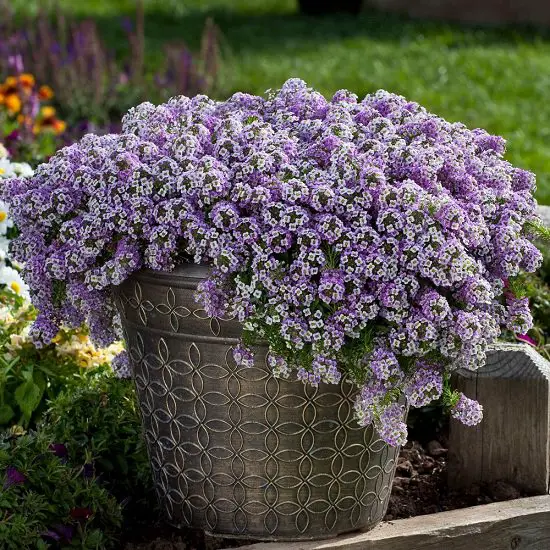
Botanical Name: Lobularia maritima
USDA Zone: 7-11
Alyssum offers intense fragrance and attractive, tiny purple, salmon, yellow, white flowers, with lance-shaped gray-green foliage, from June to October. The small plant can grow up to 3-6 inches tall in well-draining soil, under full sun to partial shade.
13. Dianthus
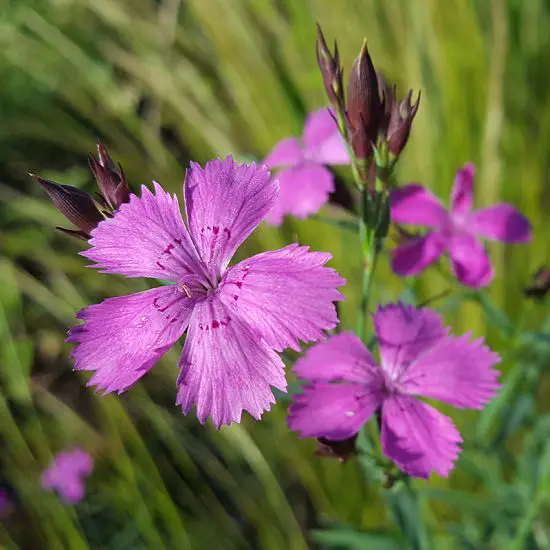
Botanical Name: Dianthus caryophyllus
USDA Zone: 3-9
Dianthus produces purple, red, white, crimson, and raspberry colored mildly fragrant flowers from early spring till fall. This long-flowering, compact perennial can grow up to 8-10 inches tall. It prefers full to partial sun and well-draining soil.
14. Zinnia
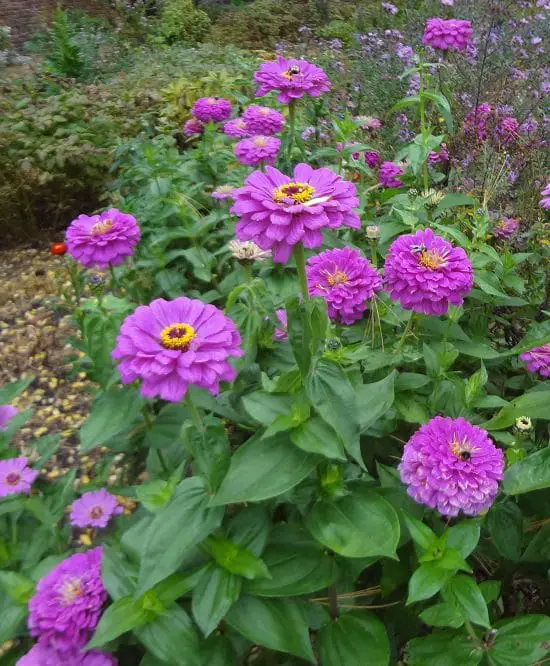
Botanical Name: Zinnia elegans
USDA Zone: 3-10
Zinnia flowers from late spring until the first frost in fall. This low-maintenance plant offers purple, pink, red, white, yellow blossoms and pale to mid-green foliage. Grow zinnia in full sun, where it can get 5-6 hours of light, in well-draining soil.
15. Purple Verbena
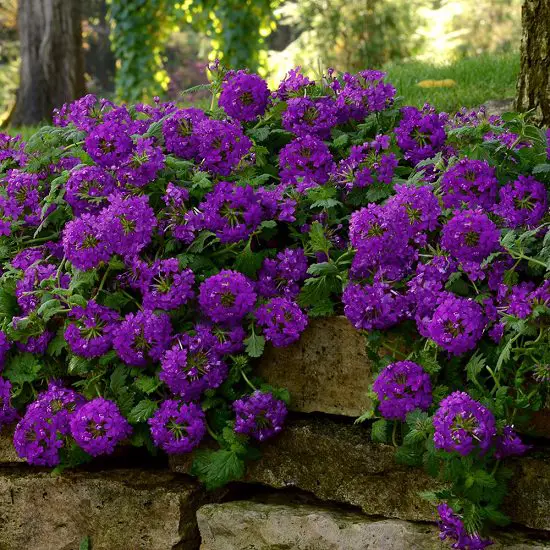
Botanical Name: Verbena ‘Superbena Purple’
USDA Zone: 3-10
The plant features classy, star-shaped flowers in a beautiful shade of purple. The plant blossoms from spring to mid-fall and the foliage remains green throughout the season. It grows up to 12-15 inches tall with 2-3 feet wide spread.


